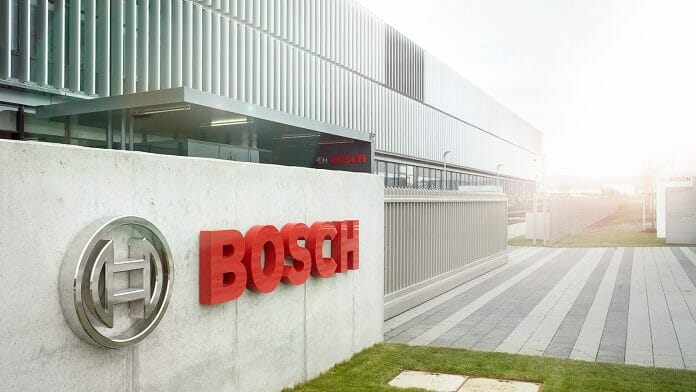The term “shortage” has been banished from mainstream society in the world for at least a few decades. Oftentimes, in the Second World War-themed movies, we see emotionless, starving people scavenging for food near the ruins of war, or that they pay high prices for commodities that are in shortage. The dark shadow of shortage has not really gone away. In fact, it is now looming over the world again. One example of shortage happens in Russia, where it is said that there is an instinctive tendency for Russian households to stock up on sugar and buckwheat every time when there is likely to be severe inflation or supply shortages. In 1998, 2008, 2014, and 2020, every economic disaster in Russia has been accompanied by a rush on sugar by the people. Sugar is once again the commodity most difficult to obtain in Russia, following its President Vladimir Putin’s “Special Military Operation” on February 24 this year that completely cut the country’s economy off from the Western countries.
If commodity shortage becomes generalized, it would be the shortage of economy, and usually, it will be accompanied by the rise of various commodity prices. Few economists around the world seemed to be talking about this right now, so let me take my point a step further here. It is actually a simple and straightforward judgment that the world will return to the era of shortage of economy.
Perhaps a lot of people, I mean the Europeans, Americans, Asians, especially those people in the OECD countries are now thinking that the war in Ukraine will eventually end through certain sensible negotiations, and Europe will be saved from war once again. In this scenario, while there would be all sorts of complaints, the world would once again be “peaceful”. This may be what most people imagine now for the end of the war. This situation may or may not happen, yet there will be a serious problem all the same. The gunfire may be stopped; however, the adjustment of the world economic structure will not be easily reversed. We will no longer see the hyper-rational prosperity scene which was based on ideological illusions in the past. Global economy has already been re-divided by a pair of super-geopolitical hands, revealing a new structure that is familiar yet completely unknown.
We can look at the logic of these impacts and the trends that the evidence shows.
Even in the early days of the war, the United States and Europe have jointly announced sanctions on the Nord Stream 2 gas pipeline. In fact, this major European energy pipeline was almost completed, but now lies in the ruins because it cannot be put into operation, and even the co-operating company has announced its dissolution. Germany, the United Kingdom, and other European countries that have relied heavily on Russian energy have announced that they will wean themselves off Russian energy and seek alternative sources of supply within a certain period of time. Among the European countries, the United Kingdom and Germany show the clearest stance, both declaring that they will basically end their “over-dependence” on Russian energy by the end of 2020. For the Western countries, it is no doubt that this will be a huge reset of the energy structure, which will not only bring about obvious inflation, but also a significant risk that each country’s economy will fall into crisis.
Such reset is structural change, and it goes beyond merely about a gas pipeline. Many of the changes brought by it are permanent structural shifts. According to the European Network of Transmission System Operators for Electricity (ENTSO-E)’s statement, Ukraine and Moldova have successfully connected to the European continent’s electricity system, paving the way for both countries to permanently cut their power links with Russia. In Belgium, the war in Ukraine has completely disrupted the country’s decision to shut down two nuclear power plants, and Belgium’s ruling coalition has now decided to keep them operating for another 10 years. Belgian Prime Minister Alexander De Croo said that “the federal government has decided to take the necessary steps to extend the lifetime of two nuclear power plants by ten years. This should strengthen our country’s independence from fossil fuels in these turbulent geopolitical times”. Belgium’s original plan was to switch to natural gas after the closure of its two nuclear power plants and build a gas plant north of Brussels. All these will change. In fact, it is not just Belgium that has decided to take contingency measures. According to a new proposal by the European Commission, the European Union as a whole aims to reduce its dependence on Russian gas by two-thirds within this year and end its dependence on Russian gas by 2030.
In terms of global manufacturing, Bosch, the world’s largest auto parts supplier, has announced to halt deliveries of truck parts to Russian customers. As Ukraine discovered that the components of Bosch, a German engineering and electronics-focused business, were used in Russian infantry fighting vehicles. “Due to indications that Bosch products – contrary to local contractual agreements – may have been used in non-civilian applications, we have stopped the delivery of truck components in Russia and to Russian customers,” Bosch said in a statement. According to Der Spiegel, German authorities have asked local prosecutors to immediately investigate the Ukrainian government’s allegations. Under EU’s sanctions against Russia, EU companies are banned from supplying Russia with any “dual-use” products suitable for both civilian and military purposes.
As a matter of fact, there are now profound structural changes in the global manufacturing and high-tech markets. Daimler Benz, Ford Motor Company, Toyota Motor, Volvo, Jaguar Land Rover, Volkswagen, General Motors, Mitsubishi, and Renault have all announced their withdrawal from the Russian market. Apple, Microsoft and Samsung Electronics, etc. have also suspended operations in Russia. In the field of semiconductor chips, ADM and Intel have both announced the suspension of deliveries to Russia. These withdrawals are even affecting the green energy sector. Orsted AS, the world’s largest offshore wind power developer has announced that it will stop buying Russian coals and biomasses.
The service sector was actually the first area of sanctions against Russia. The SWIFT system, touted as the “financial nuclear weapon”, was previously an untouchable realm, or so many of the world’s leading financial experts thought. Now, SWIFT has been used in geopolitics. This important financial transaction system has excluded all Russian banks and financiers. In addition, the British bank HSBC has announced the end of its relationship with a number of banks including Russia’s second-largest bank. Financial firms such as Citigroup, JPMorgan Chase, Goldman Sachs, etc. have also taken similar actions. The EU has banned its settlement system from trading stocks, bonds, or derivatives in rubles, the only currency in which Russia can pay. Interestingly, the same Western investment banks and consultancies that used to actively push the global financial community to do business in Russia are now doing just the opposite, i.e., helping them to withdraw from the country as if they have equally solid experience in this.
Even in civil aviation, which is closely related to transportation safety, Western companies have opted to cut ties with Russia. U.S. aviation manufacturer Boeing announced on March 1 that it would suspend parts, maintenance, and technical support to Russian airlines following the invasion. Europe’s Airbus and Brazil’s Embraer have also announced the withdrawal of all services to Russia. As a result, nearly 1,000 Western-made aircraft in Russia would face the supply interruption of spare parts and technical support. This move has left Russia contemplating a return to production of the notoriously unreliable domestically made large aircraft that have long been ignored.
How Western companies have responded to the sanctions on Russia has been extraordinary, and even more efficient than the pace at which Western governments have acted. Although the Russian government tried to take countermeasures to prevent the formation and spread of the divestment waves, such as emphasizing the seizure of assets, disguised refusal to pay debits, nationalization, and cancellation of joint ventures, etc., the Western business community is unmoved and seems willing to pay a heavy price. For example, British Petroleum’s divestment could lose as much as USD 25 billion but still insisted on giving up its 20% share in Rosneft. Shell announced to abandon all of its businesses in Russia, where it has 20% to 50% share in Russian gas, Siberian and other projects. Similarly, Exxon Mobil, which has as many as 1,000 employees in Russia, and Equinor ASA, Norway’s largest energy company, which has been operating in Russia for three decades, are also leaving.
From manufacturing to services and financial industries, the chain of negative impacts of the war in Ukraine has been expanding and extending.
The Russian central bank’s assets in Western countries are now being frozen. More than half of its total foreign exchange reserves of more than USD 630 billion were immediately rendered unusable overnight. The exchange rate of the Russian ruble plummeted by more than 40% on the same day and has not recovered to its original level since then. In response to the situation, the Central Bank of Russia subsequently raised the key interest rate from 9.5% to 20%. Such a high cost of funds in Russia will obviously freeze all the country’s domestic economic activities. In financial trading, major rating agencies such as Moody’s, Standard & Poor’s, and Fitch have downgraded Russia’s sovereign debt to junk status. The London Stock Exchange also suspended 27 Russian companies listed on Paternoster Square from trading.
Most importantly, food worldwide is affected as well.
In the case of China, according to some statistics, from February 24 to March 8, when the war has just started, the contract price of foreign wheat rose by 44.98% in these two weeks, and the yearly increase has reached 66.24%. During the same period time, the Zhengzhou Commodity Exchange’s strong wheat contract also rose 20.86% during the same time period. World Food Program (WFP) officials said on March 18 that the food supply chain in Ukraine, the world’s largest grain producer, is collapsing. Some of the country’s infrastructures are damaged, and many supermarkets stores, and warehouses are emptied. The WFP warned that with global food prices at all-time highs, UN agencies are concerned that the crisis in Ukraine will have an impact on global food security, especially in hunger hotspots. The UN revealed that due to inflation and the Ukraine crisis, WFP has to spend an extra USD 71 million a month on food this year, which could have fed 4 million people.
From the perspective of world geopolitics, this would be the first time ever after the Second World War that large-scale DIME (diplomacy, information, military, and economics) state power tools were used to compete in and win a war. That said, the consequences and impacts of the utilization of DIME tools in the sanctions against Russia, especially in terms of economic sanctions, remain unclear, as the action taken is not a geopolitical measure that has undergone meticulous research and planning. Such a move could have a number of unknown, damaging possibilities. This involves multiple fields, from the manufacturing sector to the service industry, to major adjustments in finance and markets. Along with the turmoil and impacts of the world geopolitical situation, the global economy may transit to the structural shift in re-division, redefinition, and reorganization of the global market from the shortage of certain commodities and market shock. This in turn may lead to a transition to a new economic era of product shortages and price shocks.
Perhaps aware of this unknown potential harm to the world economy, on March 18, a spokesman for the U.S. State Department emphasized that the sanctions imposed by the United States on Russia due to the situation in Ukraine were not intended to be permanent. Restrictions can be lifted after Ukraine regains its territorial integrity. The problem is that business relationships are not as simple as imagined by these officials. They are built on the basis of trust and credit, whether such businesses are financial services or commodity trading. Therefore, the subversion of commercial relations, the fait accompli of major losses, the unpredictable complex driving factors of geopolitics, and the powerful influence of social movements are bound to produce more profound impacts.
In just 72 hours, countries like Germany and France have changed their perception of peace and prosperity that has persisted for decades, a completely unimaginable feat in the past. For this reason, French President Emmanuel Macron said that the war in Ukraine was like a social “electric shock” for NATO.
Those who are used to peace will only remember a peaceful environment in their memories and would have a hard time believing that the scenarios of starving people lining up for food handouts and the scenes of factories, towns, and beautiful buildings in total ruins, common during the Second World War, are repeating themselves in Europe they thought to be rational and refine. The dramatic fluctuations of commodity price, previously unimaginable, will go beyond traders’ psychological price levels, seriously challenging the living standards, income levels, and assets of people around the world. Unfortunately, all these changes and shocks may very well become a reality in the future world.
This will be a new era of product shortages and price shocks, caused by structural adjustments, supply chains, and various unpredictable factors. In the beginning, it may be a breakdown of the balance of supply and demand. We might see some products in excessive supply, while others in serious shortage. Yet, as time goes on, shortages and defects in the supply chain will spread, causing more and more products to be in shortage, and prices will soar irrationally. Eventually, the world economy as a whole will see serious structural imbalance, an aftermath of the Ukraine war. This war may further expand into a world war, or become a confrontational global arms race, or it may end temporarily with the return of short-term rationality, but all these possible results will not eliminate the reality of structural adjustment of the world economy. An era of economic shortage caused by the adjustment of product, asset, and market structures has descended upon us.
This is a process of economic evolution. Every country, industry, and economy will face different situations, but they will all be bracing the structural adjustment of the market, assets, product supply, and demand, as well as of the supply chain and major price fluctuations driven by geopolitics.
This, in turn, causes more general economic difficulties and forms a shortage of economy. Such structural adjustment has broken the original supply system, and the markets of various countries will be facing reinvestment, redefinition, and reorganization of production and market resetting. The efficiency of this process will be diverse, depending on the situation of different countries. The supply, the scale, and return too will be different. In the end, the final price and efficiency will become far from optimal, causing countries’ economies to gradually slide into disastrous situations.
In the world today, the main factor that causes economic difficulties and potential major crises will not be capital as expected by Karl Marx. The most important driving factor of this would be geopolitics, and it is geopolitics that dominates the resetting process of the global economy. The conflict in the world is no longer the clash of civilizations, but more of a conflict caused by differences in civilizations. It is not merely the conflict between religions and ethnic groups, rather it is more likely caused by ideologies, and the political ambition of expansion. Such conflict is more a crisis caused by irrational people’s misunderstanding and disdain for rationality. While numerous Nobel Prizes in economics have been awarded, the deficiency in rationality has caused it hard to prevent conflicts and wars from breaking out.
In the era of economic shortage, which countries and regions may become safe havens thanks to geopolitics?
The answer is that the relative re-emergence of the Anglo-American axis, the maritime states, and the economies of the American continent, will become a possibility for this. Global spatial patterns indicate that conflicts and competitions are most intense in the continental regions of the world, i.e., the continental regions where Europe, Russia, the Middle East, Central Asia, and China and India are located, and it would be difficult to establish a buffer zone between them. In this region, direct conflicts and competitions, which have been in existence since time immemorial, are unavoidable. In contrast, the geographical location of the Anglo-American axis is in the middle of the maritime regions. The Atlantic and Pacific routes connect the American continent and a large number of island countries and regions of different sizes, often divided by the oceans. Historically and relatively speaking, there are lesser enmities between them, and they are mutually dependent in their trade relations. Therefore, while the continental regions are experiencing violent upheaval, the Anglo-American axis, the maritime states, and the Americas have more prominent opportunities for development and enjoy prosperity than ever before.
Thus, we have now come to the point where geopolitics is resetting our world, rendering everything else insignificant.
by Chan Kung Founder of ANBOUND Think Tank (established in 1993), Mr. Chan Kung is one of China’s renowned experts in information analysis.









